To Enable W-SMEs to Thrive in Côte d’Ivoire We Start by Listening to their Data and Digital Needs
This blog is co-written by Development Gateway’s Aminata Camara, Senior Consultant; Kathryn Alexander, Senior Program Advisor; and MCC‘s Agnieszka Rawa, Managing Director of Data Collaboratives for Local Impact (DCLI).
On June 28th, 2021, MCC, USAID, Microsoft, Thinkroom, and Development Gateway will be co-hosting a workshop to share, validate, inform, and build on recent research on the data and digital technology needs, profiles, and life stages of W-SMEs in Côte d’Ivoire. Hosted in French, and targeting primarily Ivorian participants, the workshop will further enable us to share, validate, and gain local input on the results of DG’s work, to ensure next steps are truly actionable and useful for W-SMEs.
Register for the workshop here.
Learn more about the MCC-USAID partnership here.
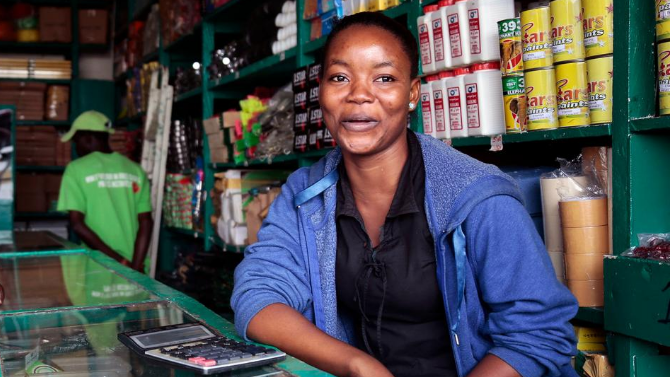
(image credit: We-Fi Secretariat, flickr: https://flickr.com/photos/we-fi/albums)
The creation of small and medium-sized enterprises (SMEs) is a promising pathway for combating poverty and creating employment in the Sub-Saharan African context. Enhancing the capacity of women to run and grow successful businesses is an important focus of women’s economic empowerment initiatives, as women continue to be at a disadvantage for accessing mentorship, training, capital, and support networks. In order to support women’s empowerment, Côte d’Ivoire has placed the promotion of women’s entrepreneurship at the heart of its development strategies. However, this initiative faces structural obstacles such as socio-cultural and gender role structures, and women’s poor access to the financial resources (loans, grants, etc.) needed to start and consolidate activities.
The Millennium Challenge Corporation (MCC) selected Development Gateway (DG) to assess the information, data, and digital technology needs of registered women-led or women-owned small and medium enterprises (W-SMEs) in Côte d’Ivoire. The work aimed to characterize registered W-SMEs in Côte d’Ivoire; understand their access to business information and data; document digital tools and technology needs; and identify existing government, development partner, and private sector engagements and investments that support them. Building on experience strengthening data ecosystems by focusing on human capital, access to digital tools, and better data policies through Data Collaboratives for Local Impact (DCLI) investments, MCC plans to use the results of this study along with the creativity, local input, and experience of an Ivorian partner to finalize the design and oversee the implementation of a Women’s Data Lab and Network (WDLN) that will help W-SMEs thrive.
Between December 2020 and January 2021, DG collected insights from key informants and knowledgeable experts (W-SMEs, hubs/incubators, government, and development partners) in the W-SMEs space, which helped to further identify and articulate themes and opportunities for increasing data use by W-SMEs. DG also administered a web-based survey that reached nearly 800 W-SMEs across the country. In line with learning best practices, DG also shared back the results of the survey with the survey participants in April 2021, along with a summary of resources currently available to W-SMEs in Côte d’Ivoire.
In Côte d’Ivoire, W-SMEs represented 20% of SMEs created in 2016 (Promotion of Female Entrepreneurship in Côte d’Ivoire: State of Premises and Prospects, International Journal of Innovation and Applied Studies, September 2018). Additionally, 21.7% of business owners are women, but only 28% of sole proprietors are women (Snapshot women SMEs in CIV and ecosystem, MCC). Overall, the informal sector is the largest provider of employment with 91.8% of jobs ( Promotion of Female Entrepreneurship in Côte d’Ivoire: State of Premises and Prospects, International Journal of Innovation and Applied Studies, September 2018). Women are overrepresented in the informal sector, running 62% of unregistered businesses (Ibid.). SMEs are often classified as agricultural or non-agricultural, and women entrepreneurs are also overrepresented in non-agricultural self-employment (Snapshot women SMEs in CIV and ecosystem, MCC). According to Agence Côte d’Ivoire PME (CI-PME), Ivorian W-SMEs operate most heavily in trade, services, and agro-business.
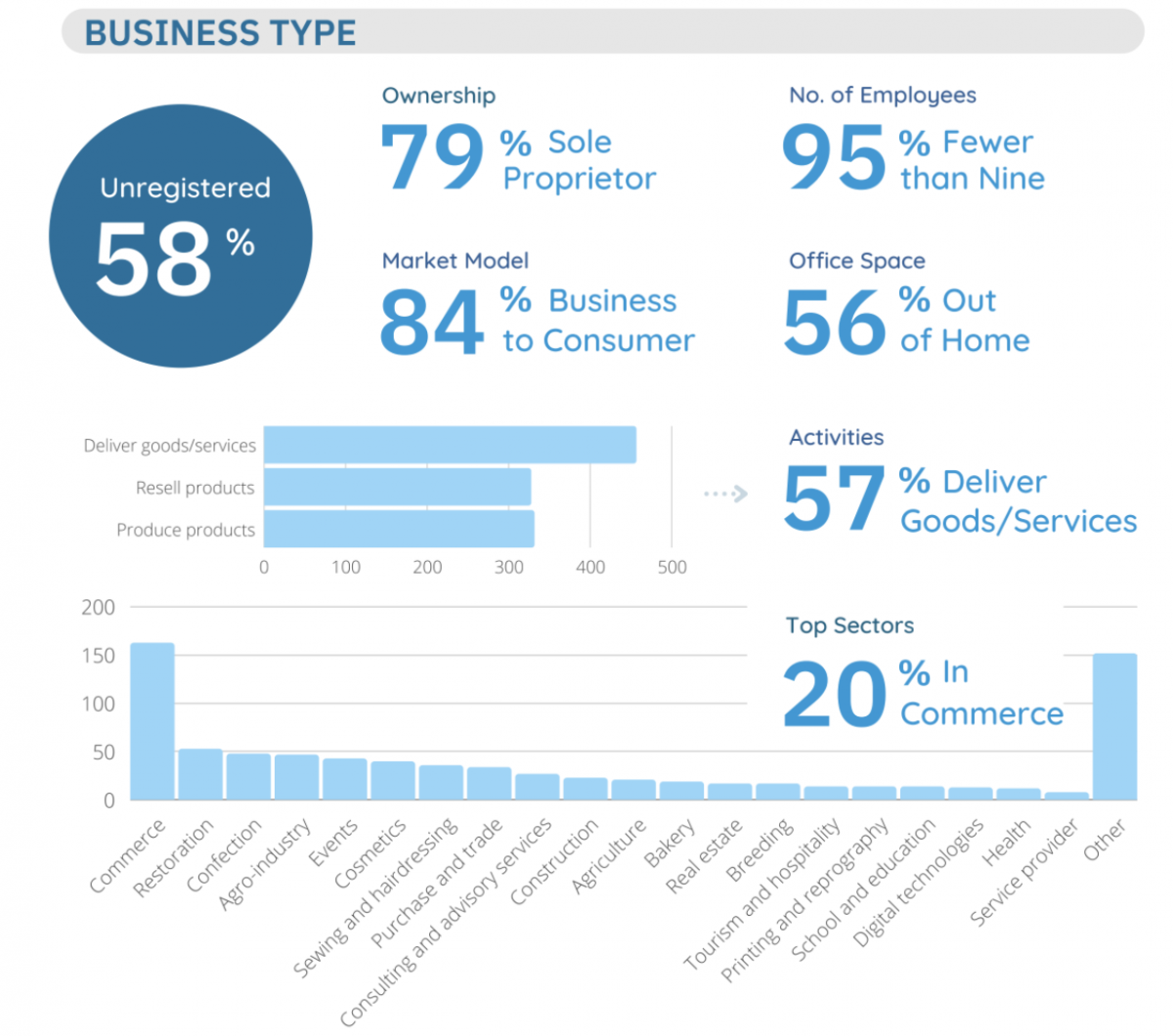
As the W-SME sector attempts to formalize, having greater access to public information can help W-SMEs to identify business opportunities, engage in government contracting, and create new innovations by developing value-add services using open data. However, for these ambitions to be achieved, further support is required in building the skills, access, and resources for W-SMEs to find, analyze, and use data in their business. Additionally, the availability of skilled data analysts and/or data scientists in Côte d’Ivoire is limited, resulting in a human resource gap that may challenge many W-SMEs. Recent initiatives, such as the Des Chiffres et Des Jeunes program (an MCC DCLI-funded investment) have invested in building data science skills, with a particular emphasis on reaching young women. W-SMEs need information on how to access data or information, and where to find support such as technical experts who can help develop or improve their business.
Profile of W-SME Owner or Founder
There is no one typical profile of women entrepreneurs overall. Women of all ages are active in entrepreneurship. However, when it comes to the formal business side, a more specific profile emerges. W-SME managers or founders are generally women with a diploma or university degree and prior professional experience.
“There is no typical profile, women are educated, uneducated, and do not always have a notion of business development. One of our members is educated and passionate about agro-processing and needs technical support. There’s another one who just has the baccalaureate and is passionate about cosmetics. One who comes back from France and who launches her black doll production unit” – Interviewee
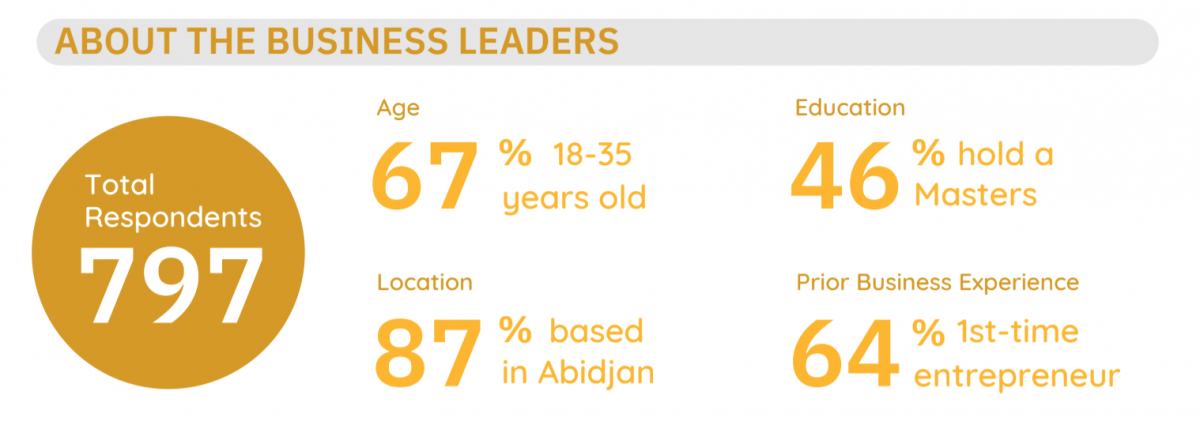
Key Challenges Facing W-SMEs
Access to information is a major challenge, as many W-SMEs do not know where to find important administrative information on taxation or accounting, or on business opportunities and training available to women entrepreneurs. Access to finance is an equally pressing issue, in addition to challenges around business and entrepreneurial skills, data use or technology skills, and difficulties in competing/submitting bids for tender. According to multiple W-SMEs interviewed by DG, some financial institutions (such as banks) refuse to finance small businesses because they do not trust them enough to successfully carry out their business plans. The hubs/incubators interviewed mentioned that the financing problems of W-SMEs are related to the fact that they often do not have well-structured requests for project funding or viable growth and scaling plans.
“The difficulty for an entrepreneur is access to information. We have to look for information on taxes, training, etc. There are many opportunities, but it is difficult to access the information.” – Interviewee
“Women sometimes have difficulty accessing information compared to men, because the channels used are more easily accessible to men. If we want to target women, we go to women’s associations. There is a need to identify where women are and how they access information”- Interviewee
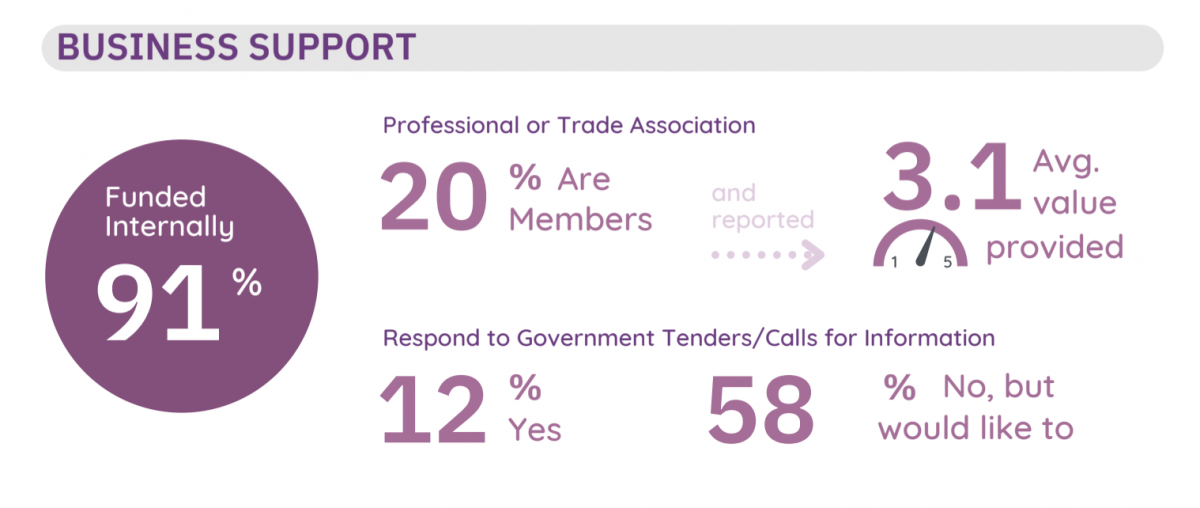
What about the use of data and tools by W-SMEs?
Regardless of the size of a business, its leader(s) require information to manage operations. SMEs and W-SMEs need to be able to access price, supply chain and market information; advisory and financial services; markets for procurement and e-commerce management; and shared knowledge and best practices (Women MSME Entrepreneurs and Digital Skills, GSI). Data use is a need expressed at different levels including company operations and W-SME sectors and markets of interest. In order to interpret data and make better decisions, leaders of W-SMEs need basic data literacy skills. Unfortunately, information is scarce on data demand and supply for W-SMEs in Côte d’Ivoire, and access to gender-disaggregated information is limited.
“W-SMEs use digital for sales, they have understood that it is not necessary to go door to door and therefore use platforms such as Facebook, Instagram.” – Interviewee
“There is a serious deficit in the structuring of W-SMEs, so the use of technology is done in a basic way – and they don’t use anything innovative” -Interviewee
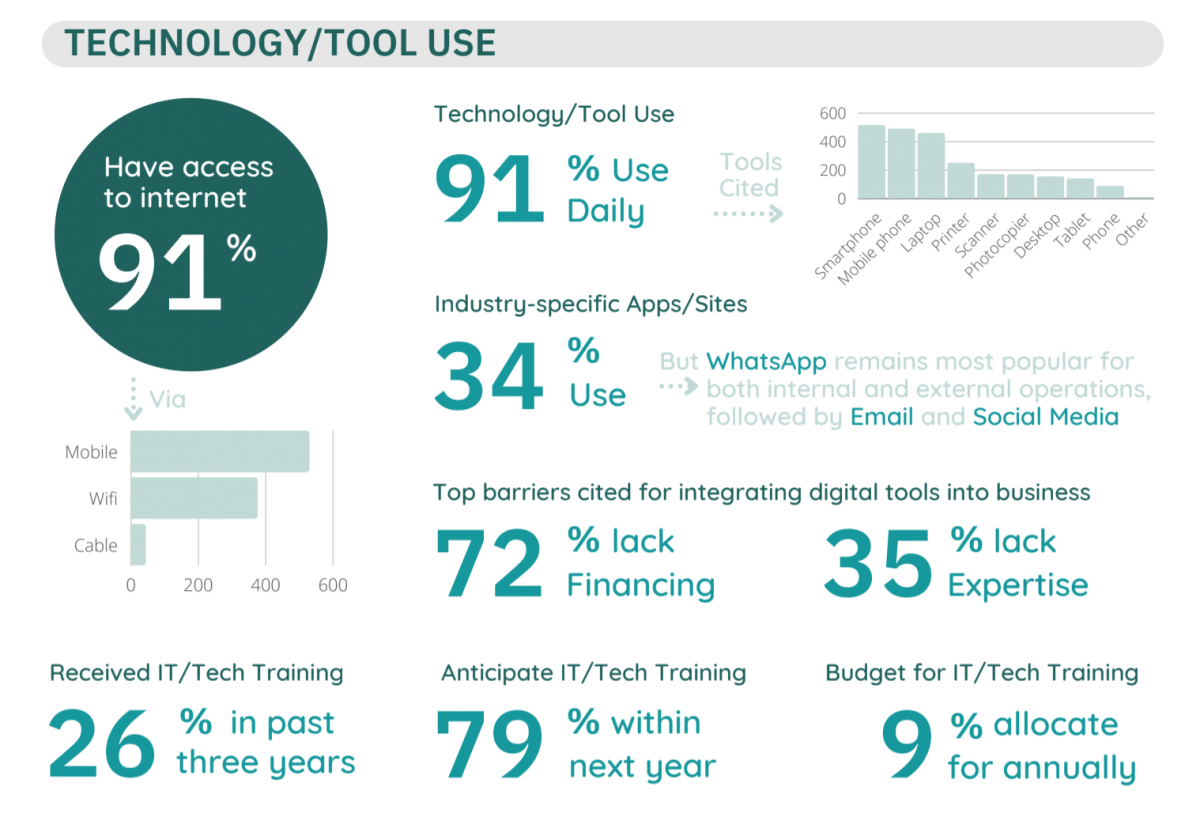
W-SME interviewees also mentioned several types of digital training, including basic use of digital technology (Microsoft Office, smartphone applications, online platforms, social networks, etc.), access to and use of software that can help them better sell and grow their business, for example tools to monitor their client portfolio and business activities, and expertise and support to develop online sales platforms.
“There is resistance when people don’t know what digital could bring them. Before focusing on digital, we need to accompany women in obtaining funds. COVID-19 has made these SMEs vulnerable and therefore obtaining resources is a prerequisite… the ideal would be to propose a package by identifying their needs and offering appropriate support”- Interviewee
“In terms of technology they (W-SME) need to use more digital and Covid has demonstrated the importance of digital and digitalization. For example, currently 80-90% of meetings are virtual – and if they don’t master these tools it will be difficult for them to be competitive or even to be able to continue their activities” – Interviewee
When available and usable, data can be used to guide marketing, strategy, financial and planning decisions.
SMEs that capture data often do so through customer satisfaction surveys via social media. The data can then be used for decision making including marketing strategies, but W-SMEs generally have insufficient capacity or time to analyze the data to convert it to usable information.
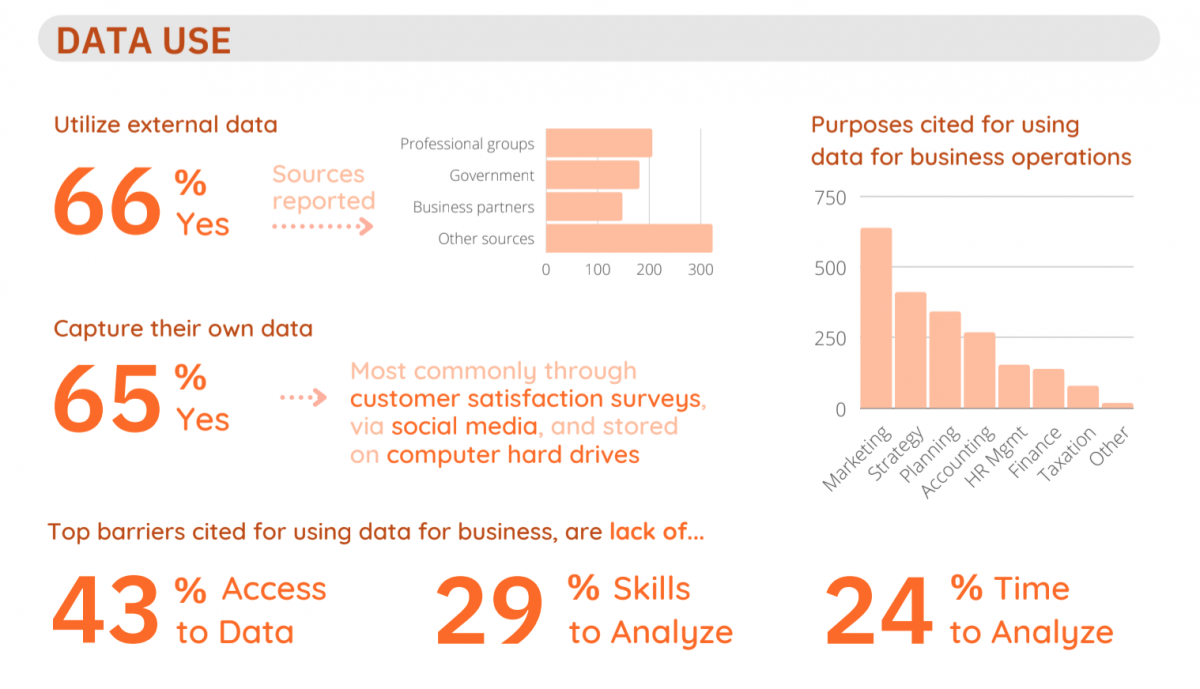
Next Steps and Key Takeaways
The study is a first-of-its-kind effort to better understand the data skills and digital tools needed by SMEs in order to better capitalize on the opportunities of the “fourth industrial revolution.” Its results are valuable in part because there is so little existing information about the needs of W-SMEs in the digital space.
Due to the COVID-19 pandemic, much of this study was completed through digital survey data collection, supplemented by focus group discussion and KIIs. Additionally, while respondents were predominantly based in Abidjan, 13% of the W-SMEs were from outside of Abidjan, including the regions of Bouake, Yamoussoukro, Grand-Bassam, Dabou, and Daloa. This provided a useful glimpse into the different types of needs and data capabilities in subnational areas where there are fewer SME programs and investments.
While access to financial resources continues to be a major need as expressed by the W-SMEs, access to business, market, and other types of information – and the ability to process and understand it – emerged as a valuable investment opportunity for W-SMEs to better reach their customers.
Results of this research will inform investment in the aforementioned WDLN program, which is a partnership between MCC, the US Agency for International Development (USAID), and Microsoft that will aim to support and empower W-SMEs through business data, digital skills, and a network in Côte d’Ivoire.
Our work highlights the importance of better understanding the specific needs of women entrepreneurs more broadly, in addition to highlighting the need to be able to tailor actions and strategies align with W-SME needs and expectations.
Share This Post
Related from our library
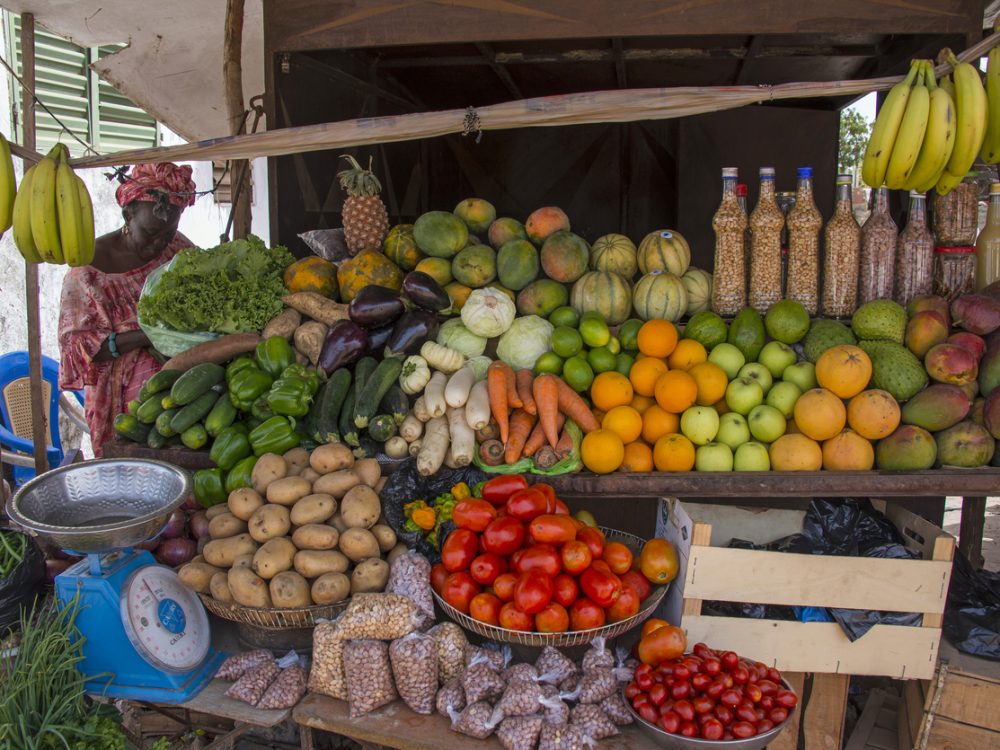
Development Gateway Collaborates with 50×2030 Initiative on Data Use in Agriculture
Development Gateway announces the launch of the Data Interoperability and Governance program to collaborate with the 50x2030 initiative on data use in agriculture in Senegal for evidence-based policymaking.
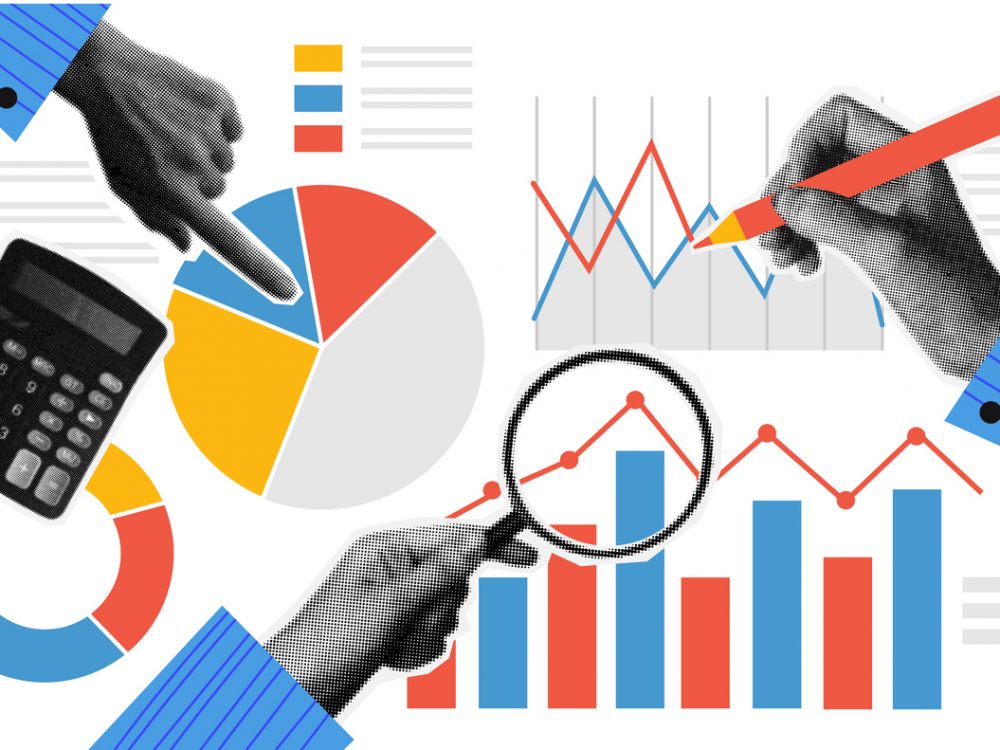
From Data to Impact: Why Data Visualization Matters in Agriculture
This blog explores why data alone isn’t enough; what matters is turning it into usable insights. In agriculture, where decisions have lasting impacts, user-friendly tools help farmers and policymakers alike make better choices.

Introducing The HackCorruption Civic Tech Tools Repository
Introducing the Civic Tech Tools Repository: an open-source hub of digital solutions to fight corruption. Designed for growth through GitHub contributions, it brings together tools, code, and resources across six key areas for HackCorruption teams and beyond.